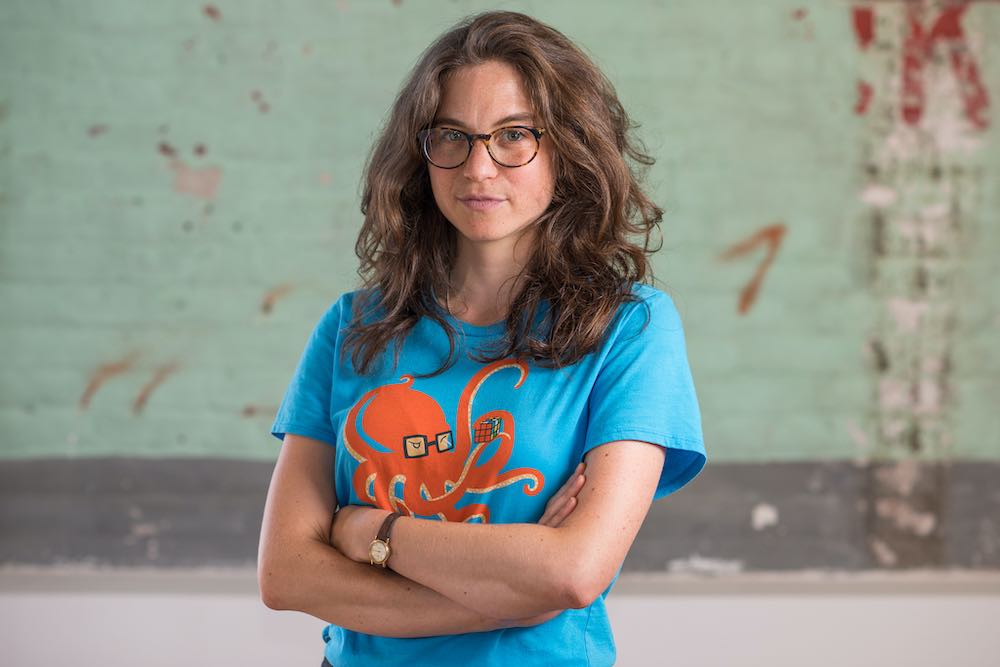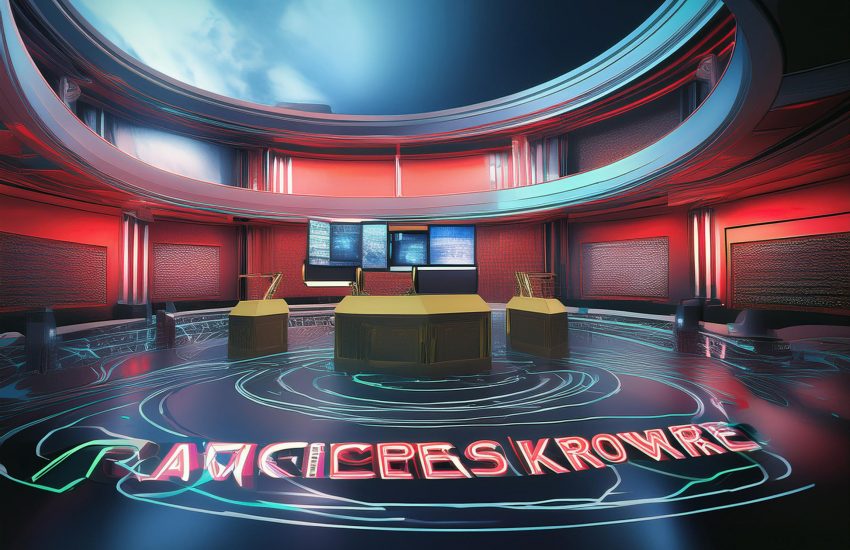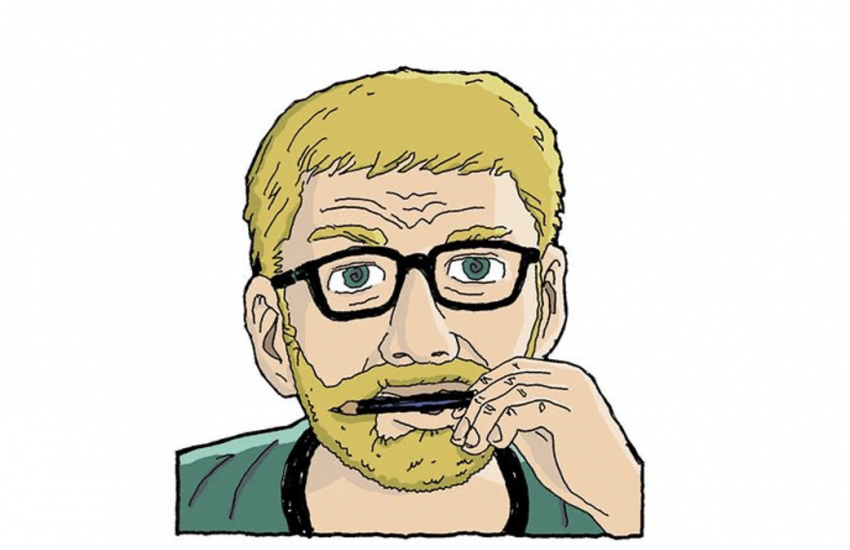How Gimlet’s Science Vs podcast produced a season on Covid-19
Science Vs host Wendy Zukerman begins every coronavirus episode with the reassurance that she’ll bring some clarity through science. In tackling Covid-19 for its eighth season, the popular science podcast has been able to provide listeners with thoughtful answers to questions like “Should I Disinfect Everything?” and “Was It Made In A Lab?”
For over five years, Gimlet Media’s Science Vs has been producing science stories based on research and interviews with experts. Topics include vaccines, DNA kits, asteroids and 5G, to name a few. In late January, Science Vs interrupted its off-season with a bonus episode about the novel coronavirus outbreak. In March, with Covid-19 reaching pandemic status, the podcast returned with a new season called Coronavirus.
The timeline for producing an episode pre-Covid might have spanned weeks or months. But with the Coronavirus season, the team is producing episodes at a much faster clip; the shortest episode turnaround being three days.
“There’s a few challenges when it comes to reporting on the coronavirus,” said Zukerman, who is also the executive producer for the show. “One of them is that the science is constantly unfolding and changing.” The show acknowledges that the Covid-19 research it covers is still new, based on small studies and preprints, and episodes feature a range of expert voices: epidemiologists, immunologists, infectious disease specialists, microbiologists and others directly involved in coronavirus research. True to the show’s commitment to facts, the episode notes include links to the full transcripts, like this one, complete with citations. Listeners can also tune in for Non-Coronavirus Content, or NCVC, a segment at the end of the episodes on wild organisms and other intriguing scientific discoveries.
Storybench spoke with Wendy Zukerman about how Science Vs is researching and producing its Coronavirus episodes.
A lot of the episodes focus on a specific question about Covid-19. How does the team usually come up with the question?
We kind of think about a couple of things. One is, “How important is the question?” Does it have stakes? Do a lot of people believe it? We also think about: “How interesting is the science?” If people have questions about the world but actually the science isn’t that interesting or exciting, we probably wouldn’t cover it, unless it was so important and we were like, “OK, we just got to do this,” and we have to somehow make the science fun.
The third one… is “What else has been said about this topic?” So there are some issues of the coronavirus where they are important, the science is interesting, but we just feel like everyone’s kind of talked about it, or there’s not really much we could add. And then, there’s other topics, for example, like the question about “Was it made in a lab?” … the news coverage was a really confusing space, so it was a good time for us to come and enrich that topic.
Are there any unique challenges that you’re facing when you’re making these episodes on Covid-19?
Usually on Science Vs we would spend quite a while, maybe two months, to research a topic in full to understand the whole spread of the science and to really get a picture. That’s not really going to change with a new paper coming out here and there because we read just a ton of research. So even if one paper comes out showing something different, if we have 20 years of research suggesting that we’ve found a consensus, then we can feel really confident in the science that we’re presenting people.
In the five years that I’ve been making the show, I don’t think we have to say the science has changed on this particular topic or that particular topic. Whereas with the coronavirus, as soon as it became important to people’s lives and that they wanted to be hearing about it, science didn’t know anything, basically. And so it’s really been learning with science.
For example, the episode on pregnancy, I would say at the beginning of the outbreak, or as soon as we started to get data about the outbreak, the feeling was that we don’t think that [the virus] crosses the placenta. In the last couple of weeks, maybe even a couple of days before we were publishing, there were preprints coming out suggesting sometimes it might cross the placenta. And then we started to speak to experts who were like, “No, no, no! We changed our view on that. We do think it can cross the placenta!” And that has really been changing our focus and what we say about a topic. So the science is changing and not only that, but the conversations are changing really quickly.
So I can imagine that you’re working on a topic and you’re doing interviews and you’re also doing research at the same time. What is that like?
It’s something that we’re still working out. Normally when we have our regular two months, we would interview a scientist first, just on background, basically to see if they’re a good talker and they have an interesting story and also just to mine them for information. Then we would do more research, and we would do our proper interview knowing what tape we want to get. And we just don’t have that luxury anymore.
Now, we’re doing a little bit of research, getting a picture, getting a sense of what we want from academics. And then, we’re just having to interview them cold.
Some academics put their lectures online, so I can kind of see “Oh, they have a little spunk in their lectures.” But sometimes, there’s nothing about them online, so you’re just giving them a call. Sometimes it’s a real bummer, and they’re checking their emails while you’re talking to them and you’re just grasping for their attention, or they’re terrible talkers. But sometimes, they’re just a delight, and you just have this beautiful conversation with them about the science. And I get off the phone. I’m just like, “Yes. That was great.” But we’re really working on the fly basically.
Aside from interviewing scientific experts, you also have some parts of episodes where you’re featuring personal anecdotes about Covid-19. How do you find those stories and those people?
Because we started producing more episodes, Gimlet gave us some extra producers. They kind of became our character-finding producers, and so that was just a huge luxury so that our team could kind of just focus on the science, which is what we’re uniquely able to do. There’s no way that we would have had the time to do it if they weren’t there.
But the way that they go about finding them is there’s a few different tactics, and it kind of depends on what that character’s role will be in the episode. So if it’s like a big character, so kind of like with the asymptomatic episode, then in that case you do have to do pre-interviews or background checks just to make sure they’re good talkers because unlike scientists where even if they’re kind of boring, at least the science they’re saying is interesting and people care about it. If it’s a character that’s boring, there’s not much that you can do about it, and then their story isn’t interesting, you know, if they can’t tell it in an interesting way.
We’re not necessarily breaking new stories in a way that other podcasts are, like breaking personal stories. Our focus is breaking the science news, so it was fine if they happened to have told their story to like the Utah local press. So [producer Laura Morris] would find them online and … have a little chat with them, see if they were a good talker and then send them my way.
For me, when learning science, it’s easier to use a visual model. How do you make those complicated science models into audio stories so they’re “visual”?
I guess there’s a few little tricks to the trade. One of them is getting people to say analogies. Even if it’s a terrible analogy, it still might help people understand it or understand it enough that they can kind of take away something. That’s a way to make it visual when you’re talking about numbers.
Another way is comparing it to things that people know. So if you’re looking at a bar graph or something, you might say, “This is like the Eiffel Tower compared to this little brick building” or “If this was true, you might expect to see a mountain of green on the screen, but instead the screen was blank.” You know, ways to build up the expectation and then pare it back down.
But it’s funny because some academics will say things like, “Oh, actually, do you want me to just send you a photo and then you can see?” And we always have to say, “No, no. You’d have to describe it. Because the audience can’t see the photo.” You don’t want to get tape of people going, “Mhm, hmm, yeah.”
You also have a call-out to the citations at the end of the episodes. Has that always been with Science Vs, pre-Covid? And why is referencing so important?
We started doing that citations chat a couple of seasons ago, and we also started putting our transcript online. And the reason that I did that is because we do all this amazing research and then what ends up in the show is really like the tip of the iceberg. It’s really what we have distilled scores and scores of papers into and what we think is going to be the most interesting and important for the audience.
Particularly at the beginning of making this show, people didn’t really believe that we’d done our homework. They didn’t see all that extra work that was going into it. Some people did, but it’s also hard being a woman talking science because you are working against that the voice of authority is a man. As a woman saying stuff that maybe people didn’t want to hear or was against their beliefs about things, it’s really hard to convince people. And so, one way to kind of butt against that was to kind of emphasize, “Look, we have citations.”
I don’t know another science podcast that goes to the level that we go to in terms of our fact-checking … There’s a lot behind everything that we say on this script… and if you’re genuinely curious, you’ll read more.
The final benefit of it was that it allowed the audience to see that there were other team members behind all the hard work. Because often, sometimes you hear our producers’ voices. Sometimes you just hear mine. So it was my way of saying, “No, there’s this amazing team that are reading these 94 citations, and you should get to know them.”
How is the show keeping that Science Vs “fun element,” given we’re in a pandemic and the topics can sometimes be pretty grim?
I’ve thought a lot about this. I think it’s important. I feel like every podcast/journalist has its own role to play in helping the audience understand what’s happening around them. With our show, people come to us and they want to know what the science is about a particular topic, and they kind of want to have a little giggle even as sad and horrifying as things are around them. I don’t feel like they want to come to a show like Science Vs and be told a sad story. Because you just can’t have everything.
And that’s not to say that we don’t sometimes have emotion in there and … tell a sad story. People have tweeted at us and emailed saying, “Even though what you were saying was actually quite sad and uncertain, I just felt relieved in the way that it was presented, and I actually feel better about things now.” Because a lot of the times we’ll just be like, “We don’t know,” but at least, the way, hopefully that we’ll present it, is like, “We don’t know, but that’s OK.”
And sometimes though, we don’t get the balance right … I could imagine if you clicked on Science Vs and you’re in [a sad] place you’d just be like, “Oh, I don’t need giggles right now.” But based on the fact that a lot of people are listening to the show and sending us thank yous, I think a lot of people do need that right now.
How did NCVC come about?
That came about because I just thought the audience would want something different and not want coronavirus content all the time and that it could be a little fun thing at the end. Kind of in the same brand of like, “What do you come to Science Vs for?” A little giggle and to learn about science. That is a way that particularly for some of the more straighter episodes is a nice little way to end it. And it’s a reminder that there’s other things happening in the world, and there is still magic out there and cool science stories that aren’t about the coronavirus.
- Behind the scenes at ‘How to Save a Planet,’ a climate solutions podcast - January 29, 2021
- How the podcast ‘Science Vs’ investigated a 1971 virus conspiracy - January 11, 2021
- How The New York Times visualized racist historical redlining and urban heat - September 17, 2020





